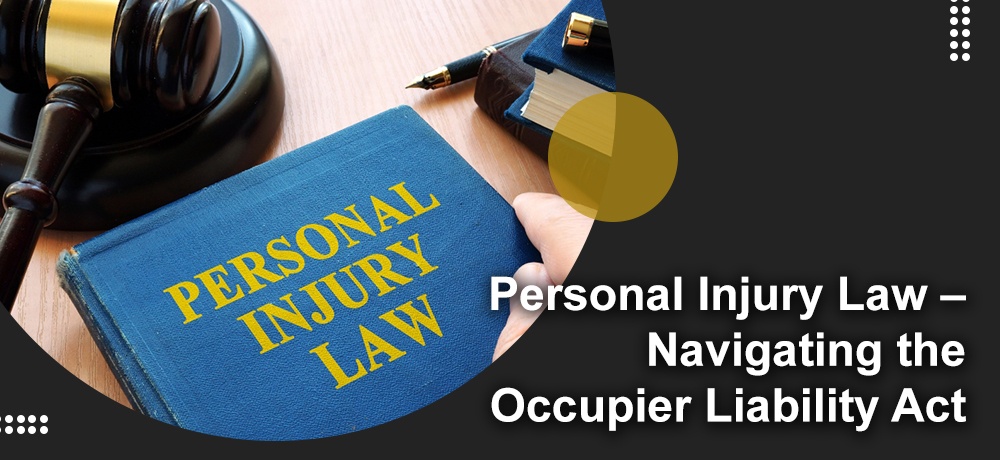Personal Injury Law – Navigating the Occupier Liability Act

Written by: John Johnson
Accidents can happen anywhere, at any time. From slipping on a wet floor in a grocery store to tripping over a poorly maintained sidewalk, these unexpected incidents can result in serious injuries that have a lasting impact on your life. In situations where such accidents occur on someone else’s property, the legal framework known as the Occupier Liability Act comes into play. In this blog post, we’ll delve into the intricacies of the Occupier Liability Act and how it pertains to personal injury law, using the expertise of JSM Law.
Understanding the Occupier Liability Act
The Occupier Liability Act is a crucial piece of legislation that defines the responsibilities of property owners and occupiers when it comes to ensuring the safety of individuals on their premises. In essence, it establishes a duty of care that property owners owe to visitors, ensuring that the premises are reasonably safe and free from hazards.
Key Components of the Occupier Liability Act:
1. Duty of Care: Property owners and occupiers are required to take reasonable steps to prevent harm to visitors on their premises. This includes maintaining the property, addressing potential hazards, and providing proper warnings about any dangers that can’t be immediately rectified.
2. Types of Visitors: The Act distinguishes between three types of visitors – invitees, licensees, and trespassers – each of whom is owed a different level of duty of care. Invitees are owed the highest duty of care, followed by licensees and then trespassers.
3. Foreseeability: Property owners are expected to foresee potential dangers and take appropriate measures to prevent accidents. This may include conducting regular maintenance, addressing unsafe conditions promptly, and implementing necessary safety measures.
Applying the Act in Personal Injury Cases
When it comes to personal injury cases, the Occupier Liability Act plays a pivotal role in determining liability and compensation. Let’s consider a hypothetical scenario to illustrate its application:
Imagine you’re walking into a shopping mall. As you step inside, you slip on a wet floor that has no warning signs. You suffer a severe ankle injury that requires medical attention and renders you unable to work for weeks.
In this situation, several questions arise:
1. Duty of Care: Did the mall owner or occupier fulfill their duty of care by regularly inspecting and maintaining the premises to prevent such accidents?
2. Foreseeability: Was it foreseeable that a wet floor could pose a risk to visitors? Should the mall owner have installed warning signs or take other precautionary measures?
3. Contributory Negligence: Were you acting responsibly and exercising caution while walking? Did your actions contribute to the accident in any way?
How JSM Law Can Assist
Navigating the complexities of the Occupier Liability Act and personal injury law requires expertise and experience. JSM Law, with its profound understanding of these legal intricacies, can provide the guidance and support you need. Our team of skilled attorneys specializes in personal injury cases, ensuring that your rights are protected, and you receive the compensation you deserve.
The Occupier Liability Act serves as a critical safeguard for individuals who have suffered injuries on another person’s property. Whether you’ve slipped in a store, tripped on a sidewalk, or encountered any other hazardous situation, understanding your rights under this Act is essential. By partnering with legal professionals like JSM Law, you can confidently pursue a fair resolution and regain control over your life after an unexpected accident.
Remember, accidents happen, but your rights deserve protection. Stay informed, stay safe, and seek the guidance of legal experts when needed. Your well-being is paramount, and the law is here to ensure it.